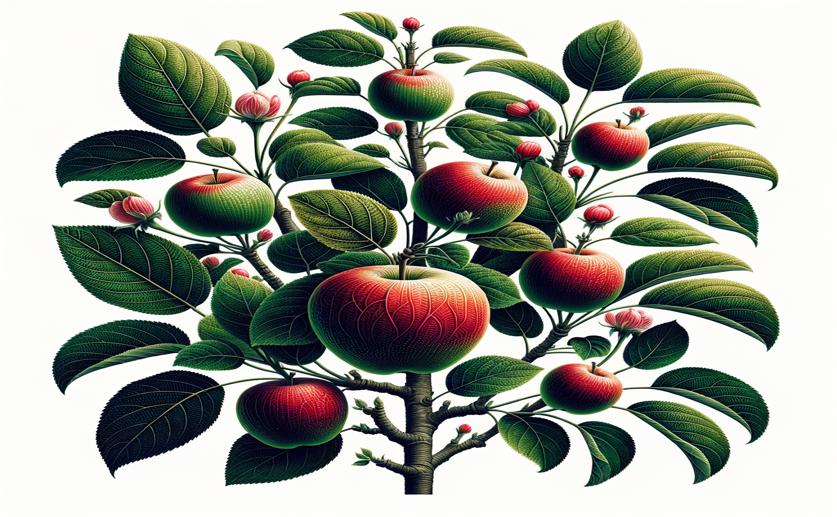
How Sugar Attachment Affects Apple Plant Shape and Stress Resistance
Greg Howard
13th July, 2024

Image Source: Natural Science News, 2024
Key Findings
- Researchers at Northwest A&F University, China, found that phlorizin is crucial for apple plant growth and health
- Transgenic apple plants with reduced phlorizin showed stunted growth, larger and more numerous stomata, and lower drought tolerance
- These transgenic plants also had less resistance to spider mites, highlighting phlorizin's role in pest defense
References
Main Study
1) Glycosylation mode of phloretin affects the morphology and stress resistance of apple plant.
Published 12th July, 2024
https://doi.org/10.1111/pce.15031
Related Studies
2) Flavonoid accumulation in Arabidopsis repressed in lignin synthesis affects auxin transport and plant growth.
Journal: The Plant cell, Issue: Vol 19, Issue 1, Jan 2007
3) Overexpression of chalcone isomerase in apple reduces phloridzin accumulation and increases susceptibility to herbivory by two-spotted mites.
4) Silencing a phloretin-specific glycosyltransferase perturbs both general phenylpropanoid biosynthesis and plant development.



 12th July, 2024 | Greg Howard
12th July, 2024 | Greg Howard